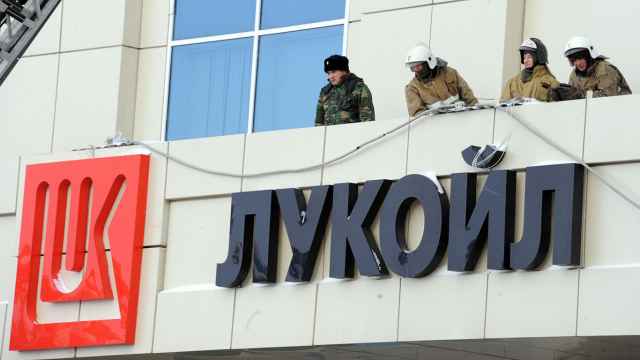The MT Conferences section did not involve the reporting or the editorial staff of The Moscow Times.

Alexander Vinogradov
Deputy Chief Executive Officer
Pepeliaev Group
Social responsibility of business and its role in the social and economic development of the country has become a topical issue. Many companies are striving to boost their competitive power and sustain a positive brand image by working on their business reputation and abiding by principles of social responsibility.
Coming across the term CSR (corporate social responsibility) for the first time, one immediately understands that this is a more significant and substantial concept than individual responsibility. On delving more deeply into the problem, you realize that social responsibility penetrates all spheres of our lives. Corporate social responsibility is everything that happens around us, and we are all an integral, indispensable and probably the most important part of it, as the whole of our planet may be viewed as one large corporation.
Firstly, corporate social responsibility means extra responsibility that companies undertake by making additional contributions to pension funds (Russian Railways (RZhD), Lukoil, GAZPROM and others), participating in voluntary medical insurance programs (as most companies now do), financing infrastructure facilities (playgrounds and sports areas, schools, nurseries, parks, etc.) and supporting other programs. Virtually all my friends and acquaintances working in large companies enjoy additional benefits provided by their employers on top of their labor benefits under effective legislation.
Secondly, corporate social responsibility manifests itself in numerous voluntary services existing in the country, as well as voluntary unions set up to raise the quality of life and help the most vulnerable social groups of the population.
Thirdly, CSR means individual responsibility or inability to pass by a person in the street or neighbour who needs your help and support.
As Deputy CEO in Pepeliaev Group, I am involved in this process. Apart from providing various additional benefits to employees, our company is implementing a number of socially oriented projects. For example, we provide assistance to the Kremlin Museums Support Fund and the Regional Public Organization of Disabled People 'Center for Humanitarian Programs' as well as other charitable organizations. We work together with the Russian State Library and State Historical Museum to help them restore historical documents and preserve the national intellectual legacy. The company is involved, among other things, in charitable projects aiming to ensure social protection for disabled people and children with limited abilities who need medical assistance in Russia and abroad.
Many people in this country tend to view corporate social responsibility only as involvement in charity projects. In fact, businesses have realized that they do need to "give something back." Most often, the corporate image is the principal motivation that induces companies to assume corporate social responsibility, but whatever purpose the company pursues in taking on this "burden" the result of it is still positive.
In our country companies help orphan homes, hospitals, schools, disadvantaged persons various non-commercial (religious) organizations and funds, but corporate social responsibility is not only help that happens "here and now." It is in many ways an investment in the future. Corporate social responsibility is impossible without each person taking individual social responsibility.
What currently hampers the development of corporate social responsibility in our country is that companies do not pay enough attention to the existing social issues, such as the deteriorating state of the environment. Another problem is that the state does not provide additional incentives for companies to participate in the social life of the country. Notably, it is mostly public companies and large corporations that are increasingly more active in assuming corporate social responsibility while little is spoken of medium-sized and non-public businesses.
Still, how the public sees corporate social responsibility depends mostly on major market players. At this point, the government is obviously the strongest and most influential of them. It is hard to overestimate the role of the state and its influence on how the principles of socially responsible behavior proliferate and become ingrained in society.
It is important now to develop a dialogue between the government and society. Without businesses and government agencies working together the social problems in Russia will remain unsolved.
The MT Conferences section did not involve the reporting or the editorial staff of The Moscow Times.
A Message from The Moscow Times:
Dear readers,
We are facing unprecedented challenges. Russia's Prosecutor General's Office has designated The Moscow Times as an "undesirable" organization, criminalizing our work and putting our staff at risk of prosecution. This follows our earlier unjust labeling as a "foreign agent."
These actions are direct attempts to silence independent journalism in Russia. The authorities claim our work "discredits the decisions of the Russian leadership." We see things differently: we strive to provide accurate, unbiased reporting on Russia.
We, the journalists of The Moscow Times, refuse to be silenced. But to continue our work, we need your help.
Your support, no matter how small, makes a world of difference. If you can, please support us monthly starting from just $2. It's quick to set up, and every contribution makes a significant impact.
By supporting The Moscow Times, you're defending open, independent journalism in the face of repression. Thank you for standing with us.
Remind me later.





